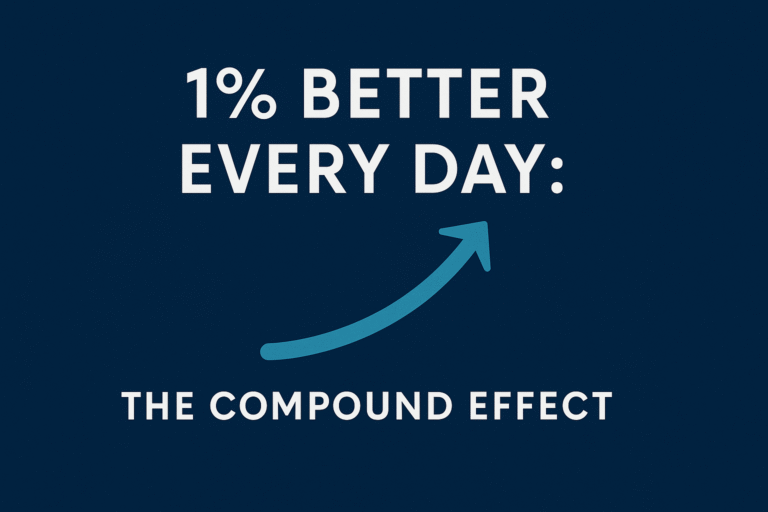We’ve all heard about the insane work ethic and productivity habits of the world’s top CEOs, but what if I told you that many of their habits are simple enough for anyone to adopt? The secret sauce to their success isn’t some mysterious formula—it’s the little things they do every single day. And guess what? You can steal these productivity habits and start applying them right now.
As someone who’s been in leadership roles and worked with successful executives, I’ve seen firsthand how these productivity habits can transform not just your work but your entire life. Let’s break down 10 productivity habits that’ll get you started on the path to success.
1. Start the Day Early
If there’s one thing most successful CEOs have in common, it’s that they’re up before the sun. Waking up early gives you a head start on the day, allows for uninterrupted time, and lets you set the tone for the day before the chaos begins.
I wasn’t always a morning person, but once I started waking up before everyone else, my productivity skyrocketed. The quiet mornings gave me space to think, plan, and work on personal development before my inbox filled up and the phone started ringing. People like Apple’s Tim Cook are known for being early risers, often starting their day before 5 AM.
Tip for You:
Start by waking up just 30 minutes earlier than usual and use that time for something productive—whether it’s reading, exercising, or planning your day. Gradually increase your wake-up time as it becomes a habit. Always start the day with gratitude it is hard to be in a bad mood and live in gratitude.
2. Prioritize the Needle Movers
One of the biggest productivity killers is spending too much time on the small stuff. The best CEOs know how to focus on what truly matters by tackling their most important tasks first—the “needle movers” of their day. A needle mover can be as simple as calling a potential client or making sales calls. Just because we feel we are doing a lot more doesn’t mean we are getting a whole lot done.
I used to start my day with emails and answering messages, thinking I was being productive. But by the time I got to the big projects, my energy was drained. I had no energy to focus towards moving business forward and moving the needle forward. Now, I focus on the most critical tasks first thing in the morning, when my mind is fresh. Remember do not confuse movement with progress!
Tip for You:
Each morning, identify 2-3 major tasks that, if completed, would make the day a success and move the business forward.. Prioritize those tasks before getting bogged down with minor details.
3. Exercise for Mental Clarity and Energy
It’s no secret that regular exercise boosts energy and mental clarity, which is why so many top CEOs make it a non-negotiable part of their day. Richard Branson claims that his workout routine gives him at least 4 extra hours of productivity each day.
It can feel overwhelming to feel like we have to add exercising as part of our regular routine. However the key is starting with easy implementations like taking the stairs, walking vs driving, getting a treadmill for the house (if possible), or scheduling to workout at the gym for at least 30 minutes starting 3 times a week.
Tip for You:
You don’t have to hit the gym for two hours every day. Even a 20-minute walk or quick workout can do wonders for your energy levels and mental focus. Start small and build from there.
4. Master the Art of Delegation
Successful CEOs know they can’t do everything themselves. Delegation is key to maximizing productivity. They focus on high-impact tasks and delegate anything that doesn’t require their direct input. Most successful CEO’s actually outsource activities like cooking and cleaning since these are tasks that have to get done but don’t move the needle forward.
Even if you’re not in a leadership position yet, you can start practicing delegation. If you’re swamped with schoolwork or side projects, consider outsourcing certain tasks—hire a virtual assistant, partner with someone for research or pay for help with tasks that don’t require your expertise.
Tip for You:
Identify tasks that are low-impact and see if there’s a way to outsource or delegate them. It’s not about being lazy—it’s about maximizing your time on what really matter. That time was already being used we are just redirecting it in the right direction.
5. Use a “Not To-Do” List
This one is a game-changer. How many times do keep a to-do list, but never think to take time to make a “not to-do list.” CEOs don’t just keep a to-do list; they also have a “not to-do” list to stay focused on what’s important. This list includes all the distractions and time-wasters they want to avoid, like excessive social media scrolling or attending unproductive meetings.
When I first started implementing a “not to-do” list, I realized how much time I was wasting on unnecessary things. Cutting out these distractions opened up hours of focused work time.
Tip for You:
Write down three things you will not do today—whether it’s checking Instagram every 10 minutes or attending a pointless meeting. Stick to it and watch your productivity soar.
6. Embrace Strategic Breaks
Taking breaks isn’t a sign of weakness—it’s a productivity hack. Many CEOs use techniques like the Pomodoro method (25 minutes of work followed by a 5-minute break) or take walks to recharge their minds. Resting the mind for a second without breaking the focus.
This tip may seem like a stretch since most cannot focus on one task for more than 15 minutes and not get distracted by social media. This strategy is about rewarding ourselves for focusing and working for an extended period of time.
Tip for You:
Set a timer for 25 minutes and work without distraction. When the timer goes off, take a 5-minute break to stretch or walk around. Repeat this cycle throughout your day. You will be surprised how much can get done in such little period of time.
7. Focus on Learning and Self-Improvement
CEOs value continuous learning. Whether it’s through reading, attending conferences, or listening to podcasts, the best leaders invest time in continuous self-improvement.
One habit I picked up from many executives is reading at least one book per month. This constant intake of new ideas helped me stay sharp and apply fresh strategies to my work.
Tip for You:
Dedicate 20 minutes a day to learning something new, whether it’s through reading, listening to podcasts, or taking an online course. Over time, this adds up to significant personal growth. Commit to going to bed a little wiser than the day before.
8. Limit Decision Fatigue
Decision fatigue is real, and it’s why many CEOs wear the same clothes or follow the same routines every day. By minimizing the number of small decisions they have to make, they save their mental energy for more important ones. It’s not because they are boring it just empties the brain from spending any extra energy on non important decisions.
I started simplifying my morning routine to avoid decision fatigue. I limited my clothing choices and usually get the same thing at restaurants. This freed up mental space for more important decisions throughout the day.
Tip for You:
Streamline repetitive decisions in your life. Pick a few go-to outfits, simplify your meals, and automate minor tasks to conserve mental energy for big decisions.
9. Schedule Time for Thinking
Top CEOs know the value of strategic thinking. They actually schedule time to sit and think without distractions. This time allows them to plan, reflect, and come up with innovative solutions.
When I first started scheduling “thinking time,” I found that it helped me see the bigger picture and solve problems more effectively. It’s easy to get caught up in the daily grind, but taking time to think is what sets successful people apart.
Tip for You:
Set aside at least 30 minutes each week to sit quietly and reflect on your goals, challenges, and strategies. You’ll be amazed at the clarity and new ideas that emerge.
10. Stick to a Nightly Routine for Better Sleep
Sleep is one of the most underrated productivity habits. The best CEOs understand that a good night’s rest is critical for clear thinking and decision-making. They stick to a nightly routine that helps them unwind and prepare for restful sleep. Believe it or not our brains still continue to work for you while you sleep.
I used to work late into the night, thinking I was being productive. But the truth is, my lack of sleep hurt my performance the next day. Once I created a nightly routine—unplugging from screens, reading, and winding down—I noticed a huge improvement in my focus and energy.
Tip for You:
Create a simple nightly routine to help you relax and fall asleep more easily. This might include turning off your phone an hour before bed, reading a book, or practicing meditation.
Conclusion: Implement These Habits for Long-Term Success
Success isn’t built in a day, but it is built with consistent daily habits. Take ownership of your minute to minute activities and brainwash your brain for success. Adopting these productivity habits, you’ll be setting yourself up for long-term wins. The key is to start small—implement one or two habits at a time—and stay consistent. Over time, these habits will become second nature and help you reach your full potential. So, which habit will you start with today?
References:
- Hughes, Jennifer. “What Time Top CEOs Wake Up in the Morning.” CNBC, May 14, 2020. CNBC.
- Chiorando, Maria. “Richard Branson: Exercise Adds 4 Extra Hours of Productivity.” Plant Based News, October 2017. Plant Based News.
- Chamorro-Premuzic, Tomas. “Why Highly Successful People Seek Help With Everyday Tasks.” Harvard Business Review, January 17, 2019. HBR.
- Allen, David. Getting Things Done: The Art of Stress-Free Productivity. Penguin Books, 2001.
- Ferriss, Timothy. The 4-Hour Workweek: Escape 9-5, Live Anywhere, and Join the New Rich. Crown Publishing Group, 2007.
- Cirillo, Francesco. The Pomodoro Technique: The Acclaimed Time-Management System That Has Transformed How We Work. Crown Publishing Group, 2013.
- Pink, Daniel H. Drive: The Surprising Truth About What Motivates Us. Riverhead Books, 2011.
- Collins, Jim. Good to Great: Why Some Companies Make the Leap… and Others Don’t. HarperBusiness, 2001.
- Tierney, John, and Roy F. Baumeister. Willpower: Rediscovering the Greatest Human Strength. Penguin Books, 2011.
- Gates, Bill. “Bill Gates on the Value of ‘Think Weeks’.” Gates Notes, February 2017. Gates Notes.
- Walker, Matthew. Why We Sleep: Unlocking the Power of Sleep and Dreams. Scribner, 2017.





